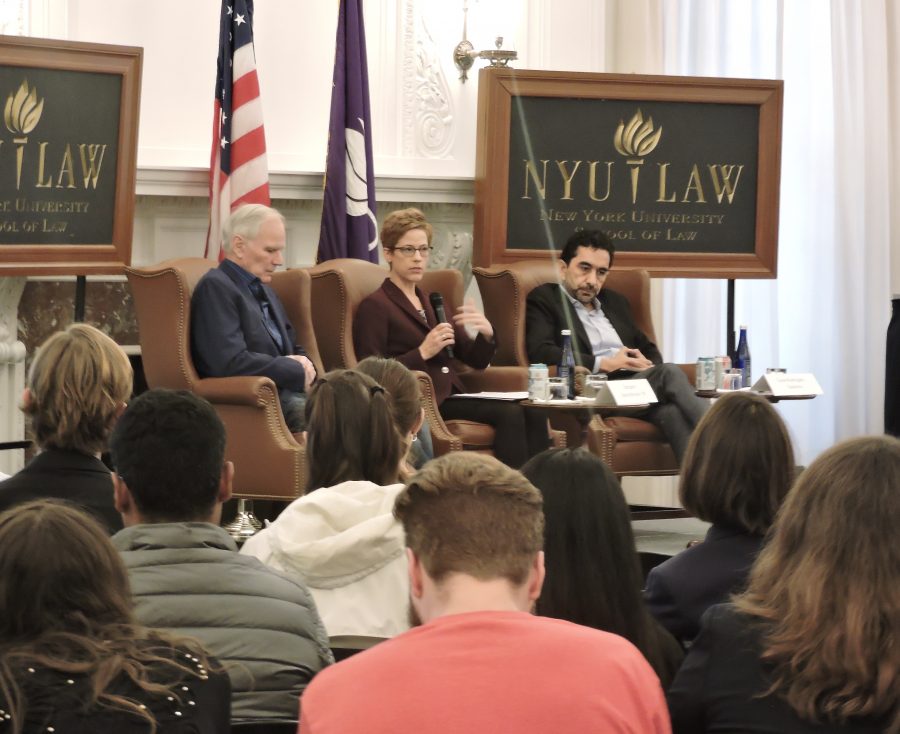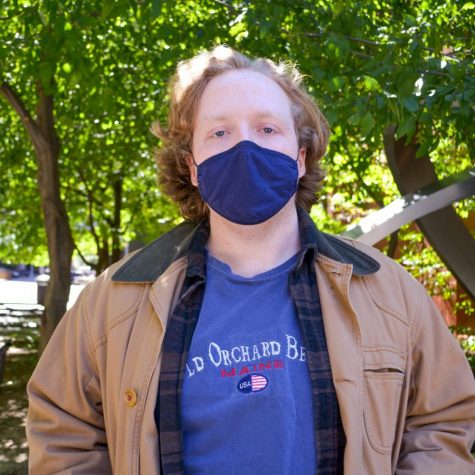Those working to improve human rights must better consider communities and their environments, U.N. Special Rapporteur on Extreme Poverty Philip Alston said at an NYU School of Law event on Wednesday.
As Special Rapporteur, Alston conducts country visits to write reports on their human rights situations. He has written extensive reports on issues including climate change and poverty in countries including Laos, Ghana, England and the U.S. His most recent work is focused on digital welfare states, government surveillance and privacy. Alston was described as “one of the most well-cited scholars of human rights” by moderator and Co-Chair of the Center for Human Rights and Global Justice Margaret Satterwaite.
Alston started the talk by defining human rights.
“Sometimes it just refers to our greatest practices,” Alston said. “Other times it refers in a much more technical way, to a formal positivist legal framework, based in treaties, based in constitutions, which courts should be interpreting and so on. Other times, its a mass movement. I think we’ve got to be more conscious of these different dimensions of human rights.”
Citing his 2018 report on Great Britain, Alston discussed the difficulty of not just defining human rights, but also the utility of the term human rights when conducting investigations due to the increasing association of human rights with the rights that should be provided to terrorists or criminals.
“The human rights community, for a very long time, assumed that if it spoke the truth and did so loudly enough, governments would fall into line,” Alston said. “But the problem is, that actually has very little to do with traction.”
For instance, Alston focused on tailoring his message about British values and general human rights motifs, rather than directly citing human rights statutes, standards or frameworks.
NYU Law student and attendee Esperanza López Rodríguez said she found Alston’s emphasis on appealing to one’s audience compelling.
“It was interesting to hear how the group tries to address the different audiences, even if you have a deep background in human rights and know how things should be done,” Rodríguez said. “Try to adapt to people who might not think the same way as you to try and convince them […] I thought was a good approach.”
Alston spoke at length about the UN Rapporteur program as well as its unintentional pitfalls. The Rapporteur program is an unpaid position, which can lend itself to field candidates, who Alston said are usually “wealthy and underemployed.”
“I enjoyed the discussion on the challenges of positions like the Special Rapporteur and other unpaid human rights positions, that can perpetuate inequality,” said Katie Wightman, the Executive Director of the Center for Human Rights and Global Justice at NYU Law.
Alston and the moderators discussed a recent trend in human rights work to focus on and empower advocates directly affected by violations, rather than the traditional emphasis on the rapporteur role. Alston said — while those affected have firsthand knowledge — locals may have different priorities based on their situation. For example, Alston said gender equity or LGBTQ issues may not be addressed in a country that is facing human rights issues associated with intense poverty.
Alston said that considering the context of human rights violations, including who they affect, is essential — but this should be balanced with a need to ensure a base level of rights.
“In any context, it’s important to think ‘who’s the audience?’ and ‘how I’m going to get through to that group or person most effectively?’” Alston said. “While at the same time keeping the foundation there.”
Email Matthew Fischetti at [email protected]
























































































































































